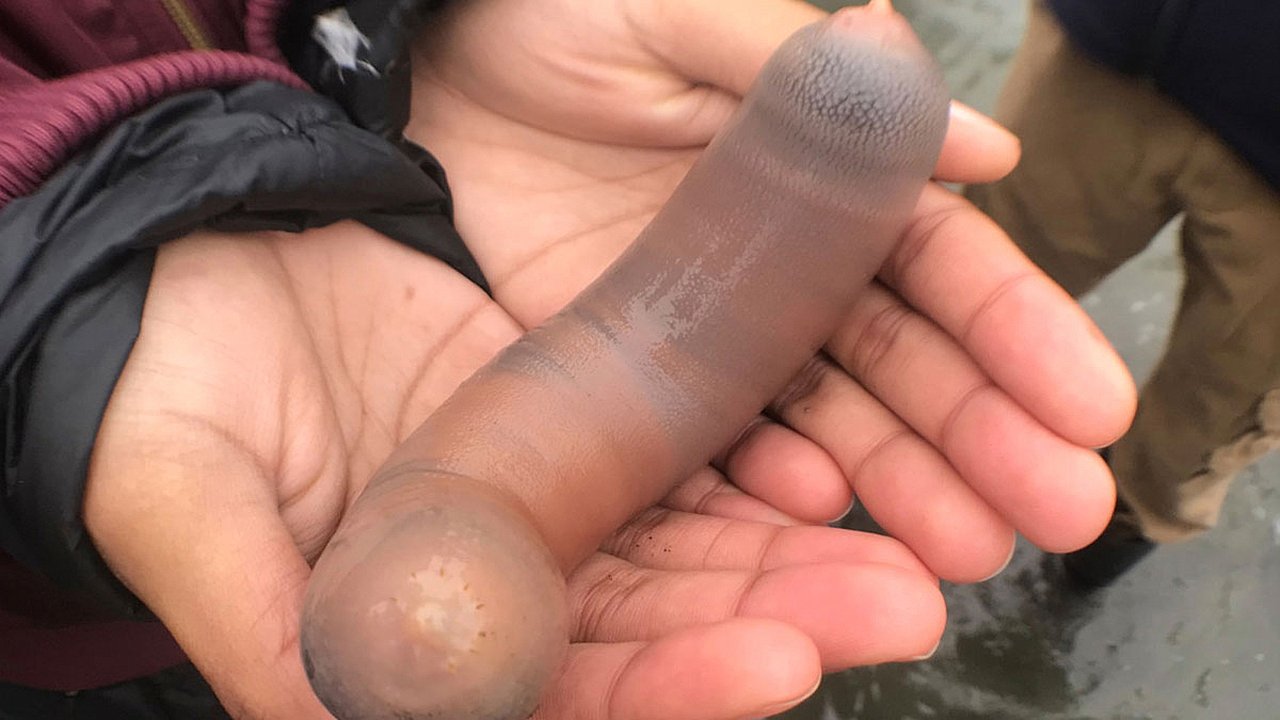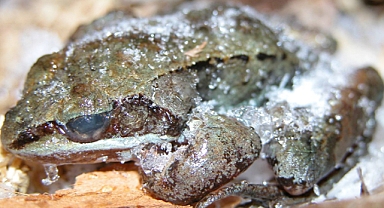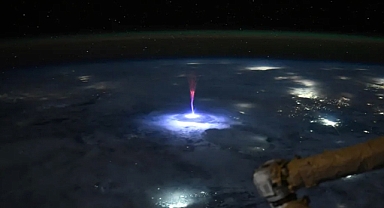Thousands of Phallic sea worms Wash Ashore in Argentina, Sparking Fishing Frenzy
In an unusual natural occurrence, thousands of urechis unicinctus—commonly called 'penis fish' due to their distinct appearance—washed up on the beaches of Multillar, Argentina, following a storm earlier this week. The peculiar creatures, which resemble sea worms and measure about ten inches, are not new to Argentina’s coastlines, having previously been spotted after severe weather.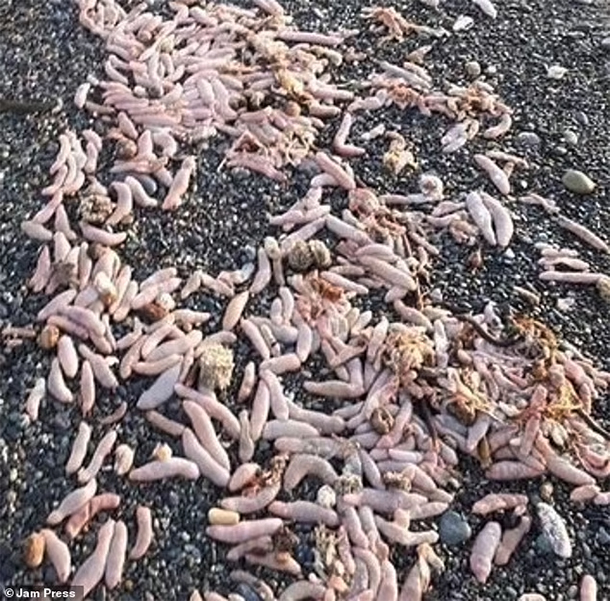 Thousands of ten-inch 'penis fish' have washed up on a beach in Argentina in a bizarre phenomenon that has given locals the willies.These sea worms, also known as fat innkeeper worms, typically reside beneath the seabed, creating U-shaped burrows where other animals often settle after the worms move on—hence their unique nickname. However, ocean swells and heavy storms can dislodge them from the sand, leaving them stranded on beaches.
Thousands of ten-inch 'penis fish' have washed up on a beach in Argentina in a bizarre phenomenon that has given locals the willies.These sea worms, also known as fat innkeeper worms, typically reside beneath the seabed, creating U-shaped burrows where other animals often settle after the worms move on—hence their unique nickname. However, ocean swells and heavy storms can dislodge them from the sand, leaving them stranded on beaches. Despite their rather rude-looking appearance, the sea worms are greatly sought after in Asia for their medicinal propertiesFishermen Collect the Bizarre Catch for Bait and Trade
Despite their rather rude-looking appearance, the sea worms are greatly sought after in Asia for their medicinal propertiesFishermen Collect the Bizarre Catch for Bait and Trade
Following the mass wash-up, local fishermen rushed to the shoreline to collect the worms, which are popular bait for species like seabass. The worms are also in high demand across Asia for their medicinal properties and culinary uses. Sold alive in wet markets, they are either eaten raw or dehydrated for preservation. In Japan, these sea worms are served with soy sauce and vinegar as sashimi, while some regions in China prefer to fry them after rehydration. Their flavor is often compared to clams, with a mild taste and a similar texture.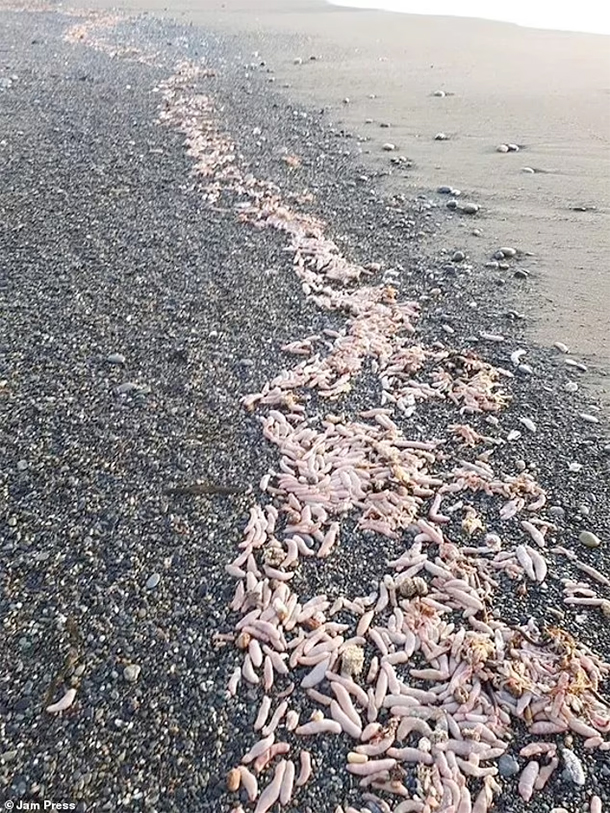 The vile-looking sea worm, known formally as the urechis unicinctus, lined the beaches of Multillar, some 15 kilometers (around three miles) north of the city of Rio GrandeA 300-Million-Year-Old Species with Unique Predators
The vile-looking sea worm, known formally as the urechis unicinctus, lined the beaches of Multillar, some 15 kilometers (around three miles) north of the city of Rio GrandeA 300-Million-Year-Old Species with Unique Predators
Fossil records reveal that the urechis unicinctus has existed for over 300 million years, with individual worms capable of living up to 25 years. Despite humans fishing for them, these marine creatures have natural predators, including larger fish, sharks, otters, and seabirds. The creatures’ odd shape and ecological role make them an essential part of marine ecosystems.In 2019, a similar phenomenon occurred in California, where thousands of these sea worms also washed ashore, baffling locals. Smaller clusters continue to appear on Argentina’s coastlines during periods of severe weather, with the recent storm adding another example to the long list of strange sea life events.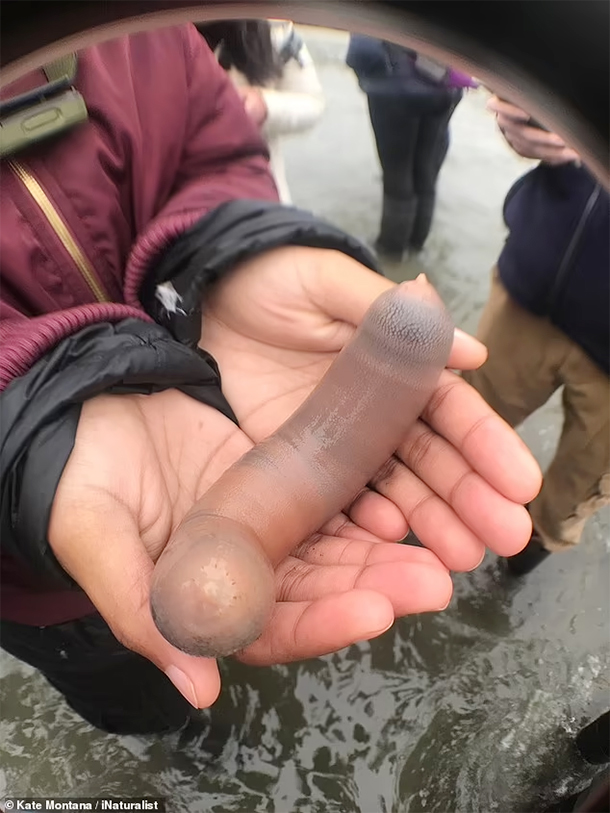 A 'penis fish' is pictured being held in 2019 after they washed up on a beach in California
A 'penis fish' is pictured being held in 2019 after they washed up on a beach in California
In an unusual natural occurrence, thousands of urechis unicinctus—commonly called 'penis fish' due to their distinct appearance—washed up on the beaches of Multillar, Argentina, following a storm earlier this week. The peculiar creatures, which resemble sea worms and measure about ten inches, are not new to Argentina’s coastlines, having previously been spotted after severe weather.
 Thousands of ten-inch 'penis fish' have washed up on a beach in Argentina in a bizarre phenomenon that has given locals the willies.These sea worms, also known as fat innkeeper worms, typically reside beneath the seabed, creating U-shaped burrows where other animals often settle after the worms move on—hence their unique nickname. However, ocean swells and heavy storms can dislodge them from the sand, leaving them stranded on beaches.
Thousands of ten-inch 'penis fish' have washed up on a beach in Argentina in a bizarre phenomenon that has given locals the willies.These sea worms, also known as fat innkeeper worms, typically reside beneath the seabed, creating U-shaped burrows where other animals often settle after the worms move on—hence their unique nickname. However, ocean swells and heavy storms can dislodge them from the sand, leaving them stranded on beaches. Despite their rather rude-looking appearance, the sea worms are greatly sought after in Asia for their medicinal propertiesFishermen Collect the Bizarre Catch for Bait and Trade
Despite their rather rude-looking appearance, the sea worms are greatly sought after in Asia for their medicinal propertiesFishermen Collect the Bizarre Catch for Bait and TradeFollowing the mass wash-up, local fishermen rushed to the shoreline to collect the worms, which are popular bait for species like seabass. The worms are also in high demand across Asia for their medicinal properties and culinary uses. Sold alive in wet markets, they are either eaten raw or dehydrated for preservation. In Japan, these sea worms are served with soy sauce and vinegar as sashimi, while some regions in China prefer to fry them after rehydration. Their flavor is often compared to clams, with a mild taste and a similar texture.
 The vile-looking sea worm, known formally as the urechis unicinctus, lined the beaches of Multillar, some 15 kilometers (around three miles) north of the city of Rio GrandeA 300-Million-Year-Old Species with Unique Predators
The vile-looking sea worm, known formally as the urechis unicinctus, lined the beaches of Multillar, some 15 kilometers (around three miles) north of the city of Rio GrandeA 300-Million-Year-Old Species with Unique PredatorsFossil records reveal that the urechis unicinctus has existed for over 300 million years, with individual worms capable of living up to 25 years. Despite humans fishing for them, these marine creatures have natural predators, including larger fish, sharks, otters, and seabirds. The creatures’ odd shape and ecological role make them an essential part of marine ecosystems.In 2019, a similar phenomenon occurred in California, where thousands of these sea worms also washed ashore, baffling locals. Smaller clusters continue to appear on Argentina’s coastlines during periods of severe weather, with the recent storm adding another example to the long list of strange sea life events.
 A 'penis fish' is pictured being held in 2019 after they washed up on a beach in California
A 'penis fish' is pictured being held in 2019 after they washed up on a beach in California